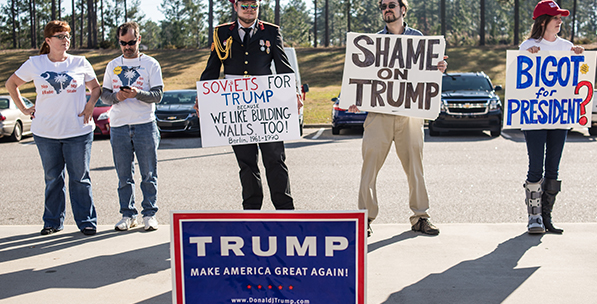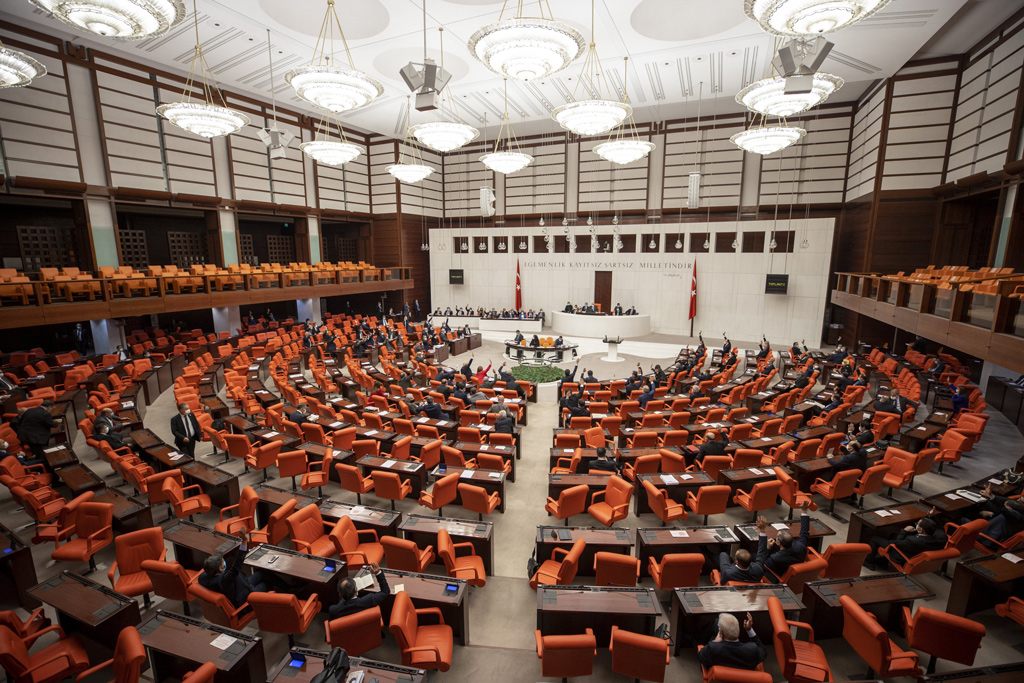Phillip Roth in one of his novels, "The Plot Against America," tells an alternative history about the United States before and during World War II, ruled by an anti-Semitic president who praised Hitler's government. As a child in New Jersey, Roth tells of the changes in the lives of Jews as discrimination and segregation started against Jewish families in the United States as a result of the policies of this hypothetical president. Of course this is a fictional story, and of course it is far from reality, but recently some started to use this alternative hisory novel to describe the debates in the U.S. David Remnick in his article on the New Yorker, mentioned this book, and said: "Fear presides over these memories," Roth's novel begins "perpetual fear." Anyone who dares to look past the comedy of Republican presidential candidates Donald Trump's surreal tweets and Ben Carson's end times ruminations will notice that the politics of perpetual fear is, in our times, the stuff of nonfiction."
When the presidential race started in the United States among almost 20 candidates, I wrote in this column about the responsibility of the presidential candidates to protect the U.S.'s standing in the world. In the piece, I gave several statements from the presidential candidates from debates about the world, minorities in the U.S. and issues such as human rights. In the increasingly globalized world of today and with the extensive use of social media, these statements from presidential hopefuls usually reach billions of people around the world in a very short period of time. I also mentioned, maybe a little optimistically, that "[t]hose who made these statements obviously could not win the presidential primaries or election, but in terms of their impact on the image of the U.S. around the world, they caused significant damage. In the upcoming election season, the candidates need to be responsible enough not to cause friction between the U.S. and its allies, not to damage the U.S.'s standing around the world and not to make discriminatory comments mainstream."
A few months after this piece, I wrote another column regarding to the increasing anti-immigrant rhetoric by some presidential candidates. "The frontrunner in the Republican primary, Donald Trump, has already used many different offensive words to describe the Mexicans in the U.S. In one of his campaign speeches he said: "They're bringing drugs. They're bringing crime. They're rapists. And some, I assume are good people." New Jersey Governor Chris Christie for example came up with the idea of tracking immigrants who overstay their visas like FedEx packages. In a campaign rally he said: "I'm going to have Fred Smith, the founder of FedEx, come to work for the government for three months. Just come for three months to Immigration and Customs Enforcement and show these people."
While the presidential candidates were looking at the polls to see how much support they gained from this increasingly offensive discourse, the world was watching what was happening to the United States. Many in the world shocked by the statements and arguments that the people who are running for the office of the most powerful person in the world. However, what concerned me and many others about the rhetoric from presidential candidates did not disappear, but instead worsened in the next few months. This is my third piece on this topic and despite the bipartisan reaction to Trump's latest statements about Muslims, which was a source of optimism for many, there is still the danger of mainstreaming of this rhetoric in the political and public domain. A few weeks ago one of the frontrunners of the Republican presidential polls, Carson, who is a retired neurosurgeon and received the Presidential Medal of Freedom in 2008, in a television interview said: "I would not advocate that we put a Muslim in charge of this nation. I absolutely would not agree with that." He supported this position later in different interviews. A few weeks after that, this time one of the other frontrunners in Republican presidential polls, Trump, came up with a new proposal following the mass shooting in San Bernardino, which has been found to be an act of terrorism. A press release from his campaign said: "Donald J. Trump is calling for a total and complete shutdown of Muslims entering the United States until our country's representatives can figure out what is going on," He also provided a very controversial and dubious statistic that says "25 percent of those polled agreed that violence against Americans here in the United States is justified as a part of the global jihad."
Although both parties, the media and large segments of the public reacted negatively to this proposal, the rhetoric itself shocked many around the world one more time by its nature, which reminded the world of the darkest period of history. In a few weeks' time we will see the reaction of the American public to this self-harming rhetoric in public opinion polls, but even the existence of this sort of debate is generating serious problems to the standing of the U.S. around the world, and has become a plot against America.
[Daily Sabah, December 11, 2015]







